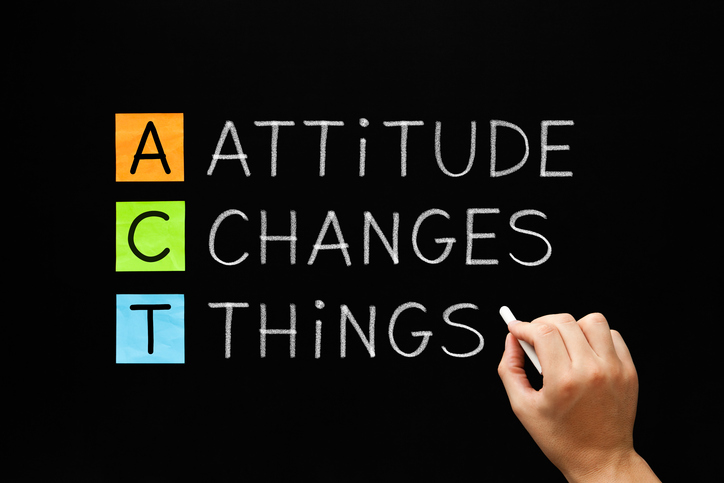
Welcome to WinnerTrick.com — the best source for success and personal development articles, motivational quotes, and tips to live your best life.
contact@winnertrick.com
Professionalism is more than just a buzzword you hear tossed around in corporate meetings or job interviews—it’s a foundational quality that influences how you're perceived, how far you progress, and how much respect you command in your career. Acting professionally means consistently demonstrating respect, responsibility, integrity, and competence in everything you do at work. Whether you're a junior employee just starting out or a seasoned veteran looking to take the next big step, knowing how to behave in a professional manner is absolutely essential.
Unfortunately, many people underestimate the importance of professionalism until it’s too late—until they’re passed over for a promotion, reprimanded in front of peers, or gradually sidelined from serious opportunities. Often, this happens not because they lack talent, but because they neglect to embody the behavioral standards that workplaces value most. The good news? Professionalism is something you can actively build through practice, reflection, and consistent effort.

Professionalism begins with how you treat people—regardless of their role or status. From the janitor to the CEO, showing genuine respect creates a healthy, cooperative work environment. Even if you’re dealing with a difficult manager or coworker, resisting the urge to complain or gossip shows emotional maturity. Think twice before voicing personal opinions about coworkers, especially in shared spaces. Respect also extends to the rules of the company. Even if you disagree with policies like no-phone zones or strict attendance rules, honoring them reflects your adaptability and respect for structure.
Your attire sends a message before you even speak. Dressing appropriately for your workplace culture not only signals respect but also boosts your own confidence. Think of it as wearing your armor—you step into the day prepared and polished. That doesn’t mean you have to be overdressed, but it does mean being neat, clean, and context-aware. In more relaxed environments, you might not need a suit, but you still need to look pulled together. Take cues from leaders in your workplace and aim to dress one notch above the minimum standard—it shows you're serious about your role.
Being on time speaks volumes about your reliability and dedication. Whether it’s arriving early for meetings or sticking to project deadlines, punctuality builds trust with your team and supervisors. It also demonstrates time management and planning skills—traits that leadership looks for when considering employees for greater responsibilities. If your workday starts at 9 AM, showing up at 9:05 consistently sends the wrong message, even if it's only a few minutes. Make punctuality part of your professional identity.

Let’s be real—work isn’t always exciting. But carrying a consistently positive, solution-focused attitude will set you apart. It’s easy to complain when things don’t go your way or when you're given tasks outside your job description. But the professionals who rise are the ones who adapt, stay calm under pressure, and take on challenges without letting negativity control their behavior. Even in tough moments, reminding yourself of your goals can help shift your energy. Optimism, even when it’s quiet and subtle, is magnetic.
Being someone your team can trust is non-negotiable. That means telling the truth even when it’s uncomfortable, admitting mistakes, and owning up when you’re at fault. If you're late, be honest. If you miss a deadline, communicate early and clearly. Managers respect transparency, and over time, that trust turns into opportunities. Fabricated excuses and cover-ups might buy you time temporarily, but they chip away at your credibility. Build a reputation for being straightforward and dependable—it will serve you throughout your career.
Your physical environment reflects your mindset. A messy desk may be harmless on the surface, but it often signals disorganization, lack of focus, or even carelessness. A clean, well-maintained workspace, on the other hand, suggests you’re disciplined and in control. Plus, it saves time. Knowing where everything is improves your productivity and reduces stress. It’s also a subtle way to show respect for shared office spaces and company resources.
Phone calls and emails are often your first point of contact with clients, partners, or colleagues from other departments—so make them count. Answering the phone with a rushed or lazy greeting sets a poor tone. Instead, use a clear, enthusiastic introduction: “Good morning, this is [Your Name] at [Company Name].” For emails, steer clear of emojis, text slang, or one-word replies. Use proper grammar, write complete sentences, and always include a signature with your contact info and title. This level of attention shows you're serious about how you represent both yourself and your company.

Being organized isn't just about tidy files or a color-coded calendar—it’s about efficiency and mental clarity. When you plan ahead, prioritize tasks, and stick to deadlines, you become a dependable contributor. Keep track of your meetings, prepare in advance, and set up systems to manage daily responsibilities. Even if your natural style is more spontaneous, learning to organize your time and tasks will dramatically improve your professional image.
Being professional doesn’t mean being robotic or emotionless—it means being mindful of how your words affect others. If you need to discuss a sensitive topic, take time to think through your message. Avoid sarcasm, jokes at others’ expense, or emotionally charged language. Whether you're giving feedback, handling conflict, or just chatting with coworkers, exercising tact ensures that you’re seen as someone who is emotionally intelligent and aware.
Doing only what’s required may keep you afloat, but going above and beyond is what gets you noticed. Look for ways to add value, whether that’s helping a colleague, proposing improvements, or taking initiative on a new project. These extra efforts not only demonstrate your enthusiasm but also reveal leadership potential. Over time, managers take note of those who consistently do more than the bare minimum.
Even if it feels harmless in the moment, gossip can quickly turn toxic—and being associated with it can damage your reputation more than you might think. Participating in office rumors, back-channel conversations, or venting about coworkers erodes trust. Professionalism means staying above the drama. If someone brings gossip to you, politely steer the conversation elsewhere or remove yourself altogether. Vent your frustrations to trusted friends outside of work, not in the office kitchen or Slack channels. It’s not about being a saint—it’s about protecting your integrity.
It’s tempting to scroll through your phone or sneak in a personal call during work hours, especially when your tasks feel repetitive or dull. But those little moments add up. Even if others are slacking off, your goal should be to stay focused. Your managers will notice the difference between someone who’s merely “present” and someone who is actively engaged. Professional behavior means staying on task even when no one’s watching. Over time, this consistency builds a reputation that opens doors.
If you're part of a team—or especially if you're a senior member—remember that your behavior sets the tone for others. New employees often look to seasoned staff for cues on how to act. If you’re cutting corners, chatting too much, or spending hours on non-work-related tasks, it signals that such behavior is acceptable. On the flip side, when you show discipline, reliability, and enthusiasm, you influence the culture in a positive way. That kind of leadership doesn’t go unnoticed.

You may say all the right things, but if your posture, facial expressions, or gestures tell a different story, you’re sending mixed signals. Professional body language is about being present, confident, and engaged. Sit or stand upright, maintain appropriate eye contact, and avoid crossing your arms defensively. Even the way you walk into a room or greet colleagues makes an impression. Nonverbal cues often carry more weight than words—so make sure yours align with your intent.
Even if everyone around you drops the occasional expletive, it’s wise to avoid following suit. You never know who’s within earshot—clients, senior managers, or HR—and inappropriate language can shift perceptions quickly. Beyond being offensive, swearing can make you seem volatile or careless. Ask yourself: would I say this in front of a new client or during a performance review? If the answer is no, then hold your tongue. Keeping your language professional helps maintain a respectful, inclusive atmosphere.
Professionalism is more than checking off a list of good behaviors. It’s a daily commitment to being the kind of person others trust, respect, and want to work with. It means thinking before you speak, acting with intention, and taking ownership of your presence at work. The payoff? Promotions, stronger relationships, a better reputation, and greater self-respect.
When you show up as your best self—even when no one’s watching—you build long-term credibility. It may take time for others to notice, but they will. And when new opportunities arise, your name is more likely to be the one in the conversation.
It doesn’t matter if you work in an office, on a job site, or remotely from your kitchen table. Professionalism travels with you. The more seriously you take your role, the more seriously others will take you.
Make sure you enter all the required information, indicated by an asterisk (*). HTML code is not allowed.